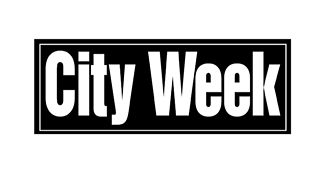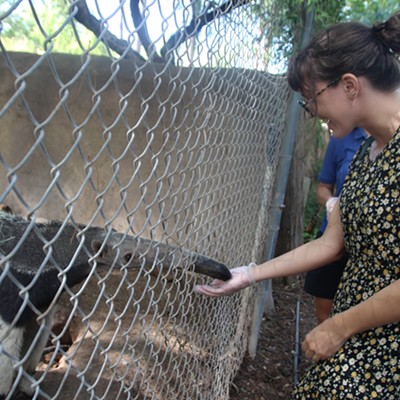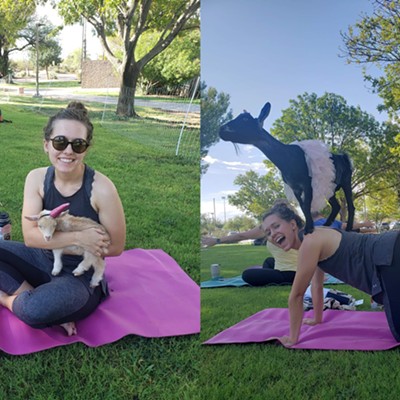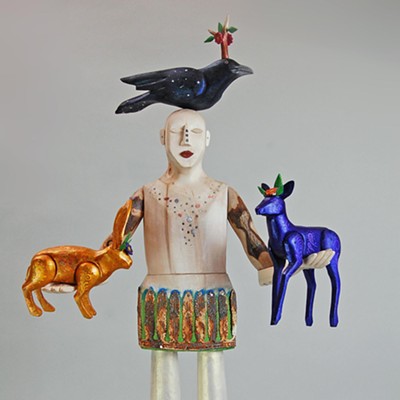We've shifted City Week to a list of COVID-19 related community resources, for the time being. See something we're missing that you'd like to see in the next edition? Email emily@tucsonlocalmedia.com.
Senior Shopping
The following stores have specialized shopping hours reserved for seniors and/or those at high risk of contracting COVID-19
Albertsons: 7 to 9 a.m. on Tuesdays and Thursdays
AJ's: 5 to 6 a.m. on Wednesdays.
Bashas: 5 to 6 a.m. on Wednesdays
Big Lots: 9 to 10 a.m. every day (for "senior citizens and those most vulnerable to the virus")
Costco: 8 to 9 a.m. on Tuesdays and Thursdays.
Dollar General: 8 to 9 a.m. at Tucson locations (first hour stores are open)
Food City: 5 to 6 a.m. on Wednesdays
Safeway: 7 to 9 a.m. on Tuesdays and Thursdays
Sam's Club: 7 to 9 a.m. Tuesdays and Thursdays "for seniors and those with disabilities or compromised immune systems"
Target: 8 to 9 a.m. (first hour of shopping) every Wednesday, for "vulnerable guests," including those over 65, pregnant women or others defined by the CDC as vulnerable or at-risk.
Trader Joe's: From 9 a.m. to 9 p.m. each day, there will be a priority line outside the front door for senior customers.
Walgreens: 8 to 9 a.m. on Tuesdays
Walmart: 6 to 7 a.m. (one hour before regular opening) on Tuesdays.
Whole Foods: 7 to 8 a.m. (one hour before opening)
If You Feel Sick
There are a couple of local hotlines you can call if you feel concerned that you're coming down with something. As you've probably heard, it's critical to call ahead, so professionals can help you assess the situation and determine the best place to go.
If you have concerns about COVID-19 symptoms or exposure, you can call Banner Health at 1-844-549-1851 to speak with a clinical team member to determine if testing is appropriate. The line will be staffed 7 a.m. to 6 p.m. Monday through Thursday and 7 a.m. to 5 p.m. on Friday. If you meet the CDC criteria for testing, you'll be scheduled for an appointment at Banner's new drive-through site in Tucson. You'll be asked to stay inside your vehicle while they conduct a nose swab, then be given paperwork to fill out, confirming that you will self-isolate until you receive your test results. They take about three to five days to return. Tucson Medical Center also has two hotlines you can call for more information about COVID-19: 1-520-626-6016 and 1-844-542-8201. If you're feeling just a little bit ill, start by contacting your primary care doctor, who can help you determine if you should come in for testing. If your symptoms are more severe, call the emergency department so they can direct you to the best place.
Adults: Emergency Department: (520) 324-5700
Children: Pediatric Emergency Department (520) 324-5070
Pima County also had a COVID-19 hotline you can call for general information about news, testing, prevention and cleaning guidelines. Call 211 from 8 a.m. to 8 p.m. daily.
If you're a veteran experiencing symptoms like fever, cough or shortness of breath, the Southern Arizona VA asks that you first call the VA Desert Pacific Healthcare Network (VISN 22) Nurse Advice Line at 1-(877) 252-4866 or to use virtual care options to determine your risk before coming in. The VA is also offering screening services and having results processed at Quest Laboratory. Test results take about seven to eight days to come back from the lab.
Finances
Local First Arizona Small Business Relief Fund. This fund for micro-entrepreneurs (businesses with 0-3 employees and less than $250,000 in annual revenue) struggling in the face of the pandemic, can apply for this funding to cover business expenses, employee salaries and other operation-related costs. Visit localfirstaz.com/covidresources to learn more.
U.S. Small Business Administration Disaster Loan Assistance. Small businesses and nonprofits severely impacted by COVID-19 can apply for these targeted, low-interest loans. The SBA is providing loans of up to $2 million to provide economic support to organizations experiencing loss of revenue in the face of the crisis.
Arizona Department of Economic Security. The Unemployment Insurance Call Center has extended its hours from 7 a.m. to 6 p.m. Monday through Friday. Call 1 (877) 600-2722 for assistance in filing for unemployment or visit des.az.gov to learn more about whether you qualify. Governor Ducey's March 20 executive order and administrative action increased access to unemployment benefits.
Growth Partners Arizona. This organization has delivered affordable loans to small businesses for decades, but they've added two loan options for small businesses in Arizona in the face of the virus. Kiva Tucson uses crowdfunding to provide no-interest, no-fee, community-backed business loans from $1,000 to $15,000. The Small Business Success Loan is for borrowers who need larger amounts, and offers loans of $10,00o to $75,000 to qualified small businesses for business growth and expansion, equipment, long-term working capital, tenant improvements and consolidation of more expensive debt. Visit growthpartnersaz.org for more information.
Community Investment Corporation. They've created an emergency microloan fund to support southern Arizona businesses affected by the COVID-19 outbreak. Loans of up to $10,000, with an interest rate of 1.5% to 3%, are designed to help bridge current and impending cash flow. Visit cictucson.org for more information.
Staying Informed
If you're glued to whatever screen you can get your hands on, soaking up the latest updates on the grim state of the world, you've probably already come across some contradictory information. Some reliable websites with information about prevention, symptoms, how to clean and disinfect different types of surfaces and more include:
• Fema.gov/coronavirus-rumor-control
Local resources:
Food
The Community Food Bank of Southern Arizona has adjusted its service hours and switched to a drive-by model for food distribution in Marana and at the Country Club location in Tucson. Temporary hours are below. Call 622-0525 or visit communityfoodbank.org/covid-19-update for more information on where to find food. They can also help you apply for SNAP benefits (formerly food stamps). Call 520-882-3314 and they'll walk you through the process.
• Tucson: Tuesday-Friday from 9 a.m. to 1 p.m.
• Marana: Effective Wednesday, March 25, Tuesday, Thursday and Friday from 11 a.m. to 2 p.m. and Wednesday from 3 to 6 p.m.
• Amado: Effective Tuesday, March 24, Thursdays from 9 a.m. to 4 p.m.
• Green Valley: Effective Tuesday, March 24, Tuesday from 10 a.m. to 4 p.m. and Wednesday and Friday from 9 a.m. to noon.
• Nogales: Effective Tuesday, March 24, Tuesday, Thursday and Friday from 9 a.m. to noon and Wednesday from 9 to 10 a.m. (SENIORS ONLY); 10 a.m. to 2 p.m. for all other visitors
Tucson Food Share is a program sharing free groceries for Tucsonans impacted by COVID-19. They accept bulk donations or purchase wholesale, pack them for individual households in a sanitary environment and distribute or deliver them. Pick up is 5 to 7 p.m. on Mondays and 8 to 10 a.m. on Thursdays at 600 N. Fourth Ave. Visit tucsonfoodshare.org to learn more.
The Interfaith Community Services Food Bank is still open. The ICS Foodbank, at 2820 W. Ina Road, is open from 9 a.m. to 1 p.m. Monday through Saturday, as well as 5 to 7 p.m. on Tuesdays. The Eastside Food Bank, at the New Spirit Lutheran Church, 8701 E. Old Spanish Road, is open from 10 a.m. to 1 p.m. Tuesday through Thursday, and from 10 a.m. to 1 p.m. on first and third Saturdays. Visit icstucson.org for more information.
The University of Arizona campus pantry is still open to students, but with a new location and hours. Bring a CatCard and a grocery bag to the Sonora Room (first floor of the Student Union Memorial Center, next to Wells Fargo) from 2 to 4 p.m. on Tuesdays and 11 a.m. to 1 p.m. on Wednesdays and Fridays. Emergency food bags are also available in the Dean of Students office, located in the Nugent Building. Visit campuspantry.arizona.edu to learn more.
Churches, nonprofits and other organizations operate several other foodbanks throughout town. Visit Foodpantries.org/ci/az-tucson for a full list of places to turn. ■












